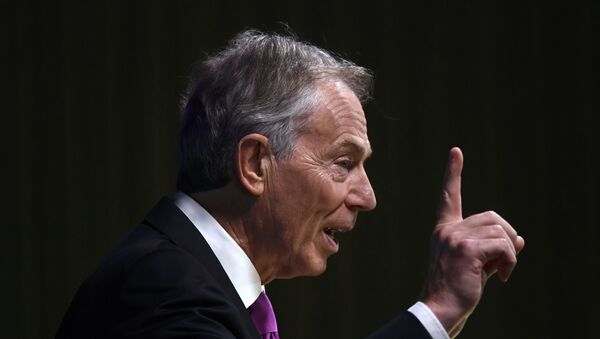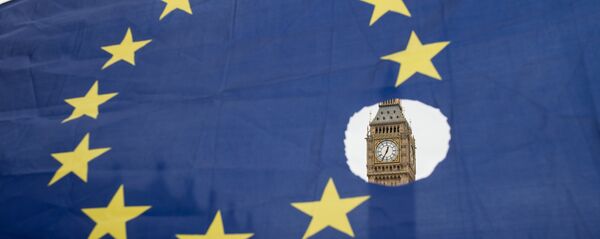Radio Sputnik discussed this with Mark Garnett, a politics professor at Lancaster University and author of the book "From Anger to Apathy: The British Experience."
Sputnik: What’s your take on the “return to dark politics” statement from Mr. Blair? Is it really the case?
Mark Garnett: I think it’s not surprising that Mr. Blair is deeply and genuinely concerned about certain trends and in particular he identifies the mood in which national leaders are urging their supporters to think of their own interests first and the idea that this is leading to a break-up of long-standing alliances, but obviously the allusion to the dark politics of the 1930s is a very easy kind of warning to raise; the circumstances are very different now. I think really what he’s saying is that we are now in danger of having an ugly period in politics, which does raise threats of instability and possibly even rising international tensions.
Sputnik: He’s also underlined the importance of US-UK relations. How do you see London’s and Washington’s ties playing out in the near future? We’ve had a few issues since President Trump came to power with regard to relationship with Mrs. May, but really it continues to remain robust, doesn’t it?
Mark Garnett: Obviously when Mr. Blair is warning about the rise of populism of the right and of the left, he’s talking about this in the context of the Brexit vote, which he very deeply dislikes. It’s another way, I suppose, of making people think again about the Brexit vote; it’s just part of this mood which is leading to rising tensions.
READ MORE: Theresa May Warned Her Leadership is at Stake Over Brexit Performance
So what Mr. Blair is really saying there is he wants Mr. Trump to return to the “good old days” when US presidents came over to Britain and made these gestures which were intended, really, to make British people feel that they mattered on the world stage. Mr. Trump is clearly not made of that kind of material and so Mr. Blair is really trying to persuade Mr. Trump not to expose Britain’s weakness in this current situation, because, of course, Britain’s weakness in the world is something which doesn’t help it in its negotiations with Brexit. I think how you would interpret Mr. Blair’s speech is that Brexit is a very terrible thing and that the dark forces, the dark politics he’s talking about are really things which endanger his style of politics and which expose Britain’s position in the world.
Sputnik: Blair has also been calling for Britain to delay Brexit; we know that, you’ve mentioned that. How likely is that going to happen and is that something that should be just put into history?
Mark Garnett: Obviously the legislation has just gone through it looks on the surface as the process is happening. The point is that Mr. Blair’s saying we want this process delayed; in fact it has been delayed, there’s going to be a transitional period and that transitional period is like a piece of elastic that seems to expand forever. There’ll be a declaration that Britain is now, I think most people are no longer fooled by this idea that somehow in March next year, Britain will be a liberated country, but nobody’s going to be bothered about that. People I think are more angry that the government hasn’t actually secured a deal which means that it really does mean something when Britain leaves the EU. So I think what he’s saying, and of course the main point here is that the timetable was set in motion by the British government, it isn’t the EU that’s being accelerating the negotiations, it’s actually the British government which didn’t need to trigger Article 50 of the Lisbon Treaty which began this process.
The views and opinions expressed in this article are solely those of the speaker and do not necessarily reflect those of Sputnik.





